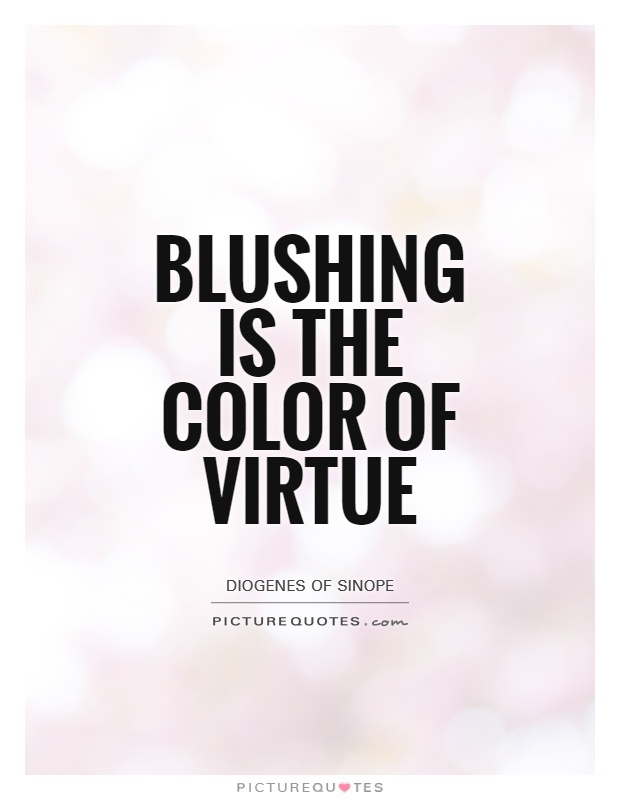Blushing is the color of virtue

Blushing is the color of virtue
Diogenes of Sinope, the famous Greek philosopher known for his unconventional lifestyle and sharp wit, is often associated with the quote "Blushing is the color of virtue." This statement reflects Diogenes' belief in the importance of honesty, humility, and integrity in one's character.In ancient Greece, blushing was seen as a sign of modesty and sincerity. When someone blushed, it was believed to be a physical manifestation of their inner virtue and moral goodness. Diogenes, who valued simplicity and truth above all else, saw blushing as a symbol of a person's genuine nature and their willingness to acknowledge their own faults and shortcomings.
For Diogenes, virtue was not just about following a set of rules or conforming to societal norms. It was about living authentically and being true to oneself. Blushing, in this context, represented a person's ability to be vulnerable and open about their emotions and experiences. It was a sign of their willingness to be honest and transparent in their interactions with others.
In a world where deceit and hypocrisy were rampant, Diogenes believed that blushing was a rare and precious quality. It was a reminder that true virtue could only be found in those who were willing to confront their own weaknesses and imperfections. By embracing their vulnerability and showing their true colors, people could cultivate a sense of integrity and authenticity that set them apart from the crowd.












 Friendship Quotes
Friendship Quotes Love Quotes
Love Quotes Life Quotes
Life Quotes Funny Quotes
Funny Quotes Motivational Quotes
Motivational Quotes Inspirational Quotes
Inspirational Quotes